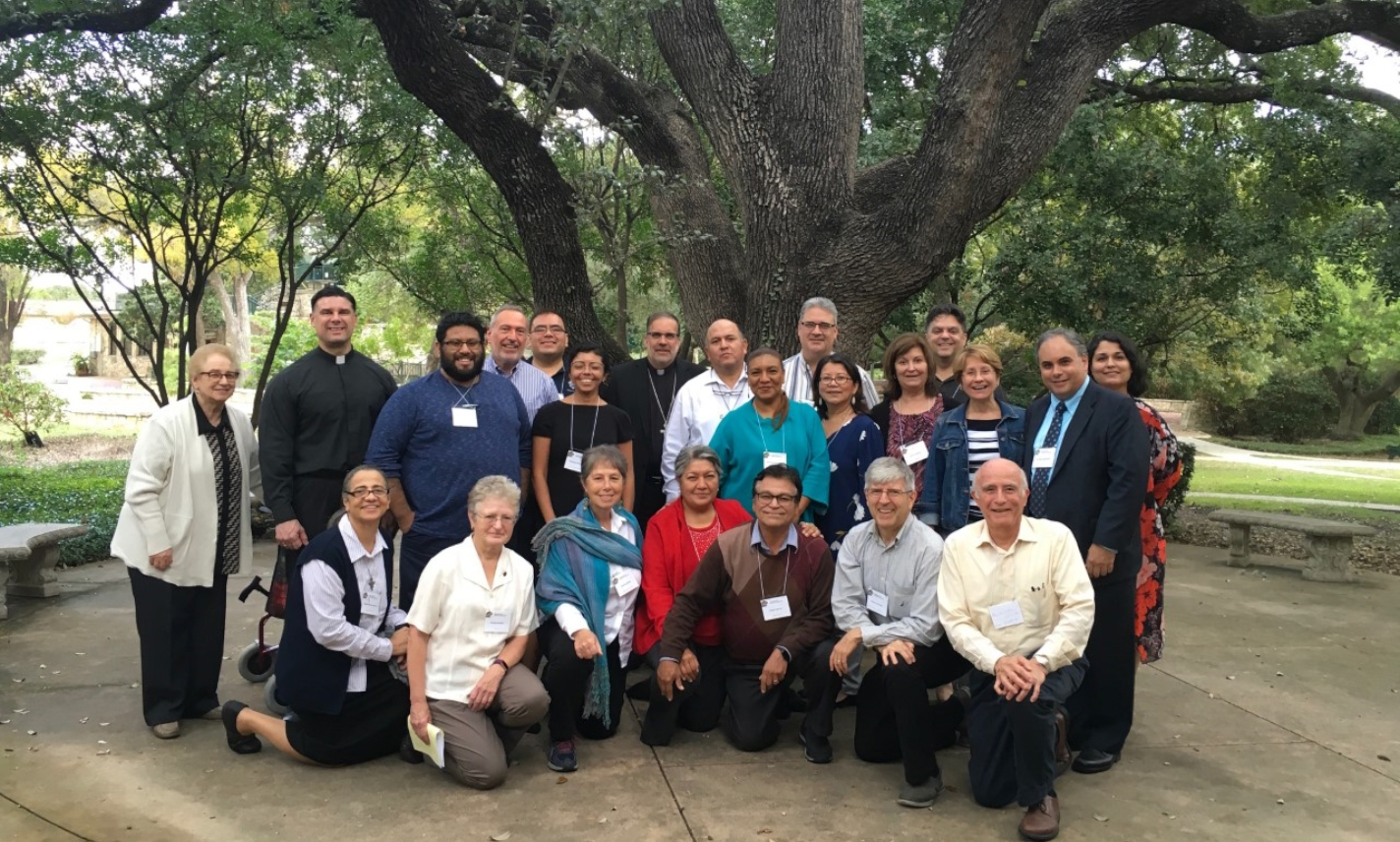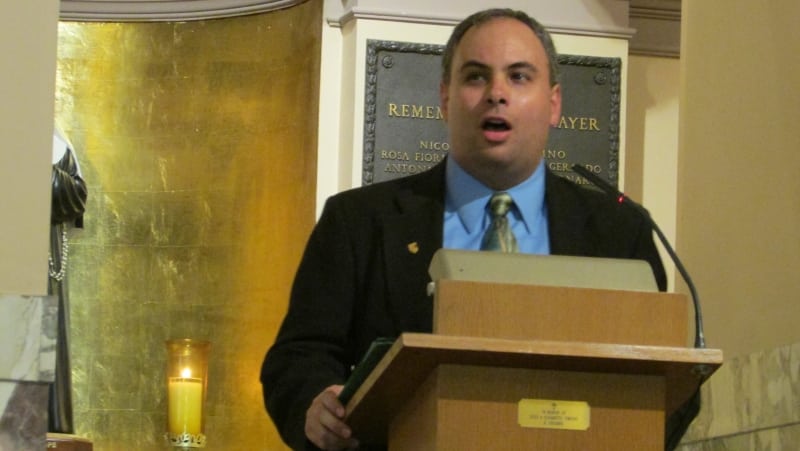Memorial of the North American Martyrs | October 19, 2019
Today the church celebrates the Memorial of the North American Martyrs, the Jesuit missionaries Isaac Jogues and John de Brebeuf and their companions. Their story and today’s readings are a reminder about how faithful witness to the love and care of Christ, even in the midst of difficult times and suffering, will always bear God’s fruit.
Saints Isaac and John were from France and came to what is now Canada, to the territory of the Huron people in the 17th century. While initial interactions between the Jesuit missionary settlement and the Huron were difficult, they were able to achieve a friendly relationship due to Saint Isaac’s conciliation and diplomacy. This allowed these missionaries to engage in their spiritual witness and work among the Huron for six years, living among them in every way. Today we would say they developed an intercultural perspective!
However, the ill effects of colonization which caused disease and other hardships for many Native American tribes couldn’t be disconnected from this missionary work. The hostility expressed by the colonizers to many of the Native Americans was often returned by the native communities, leading to many imprisonments and deaths on all sides – including among the missionaries, who often pursued their proclamation of the Gospel with a zeal that included actions we would see as cruel and question today. St. Isaac and his companions are no exception.
St. Isaac and his companions were captured by the Mohawk Indians of the Iroquois Confederacy in what is now Central New York State, not far from where I was born and raised. I thus know well the story of St. Isaac and how he was brutally imprisoned and tortured by the Iroquois. He didn’t die then, but was eventually freed. All through his captivity, he held fast to the faith St. Paul spoke about in today’s first reading – the gift of hope in the promises of God. He also held fast to his witness to Christ, never becoming belligerent with his captors, but ministering to his fellow prisoners and preaching to the Iroquois, even as he endured great suffering.
St. Isaac returned to Europe for a time and Pope Urban VIII considered him a ‘living martyr’ for the suffering he endured. Undeterred, he returned to the territory of the Iroquois in 1646. It was at that time that he was killed by the Mohawk Indians. He and his companions are today considered patron saints of North America.
St. Isaac’s witness among the Mohawks in the early 17th century had an unexpected and indirect impact 30 years later when a young woman of the Mohawk nation, Kateri Tekakwitha – influenced by missionaries who came after St. Isaac – became a Catholic Christian on Easter Sunday in 1676. Kateri is also now venerated as one of the first Native American saints.
St. Isaac’s story, and that of his companions, is a reminder that – even in the midst of great brutality, misunderstanding, and even terrible approaches to the missionary work of the Gospel, the Holy Spirit was at work in the lives of these martyrs, and even among those who caused their suffering. When we remember both aspects of these and other challenging encounters between peoples from the history of missionary work, we honor the deep suffering caused, but also the flowering of the Gospel message in God’s time.
Together, let us pray that, in our day, we will hold those memories together, and that our Gospel witness will always reflect the peace and joy which comes from that witness of faith.
God give you peace!
+ + +
As Director of Certification for Ecclesial Ministry and Service at the United States Conference of Catholic Bishops (USCCB), I have the opportunity to record video reflections on the readings of the Scriptures proclaimed at daily Mass. I do so as part of larger group of colleagues at the Conference, along with lay and ordained leaders from around the country. I am grateful for the opportunity to reflect on the meaning of the readings for the life of faith today and to share them here, along with the written text of the reflections. To view these video reflections for past and upcoming celebrations of the Eucharist, visit the USCCB website.


 Request Dr. DelMonico's professional services for a liturgical, ministerial or leadership consultation, or for an academic or public presentation.
Request Dr. DelMonico's professional services for a liturgical, ministerial or leadership consultation, or for an academic or public presentation.